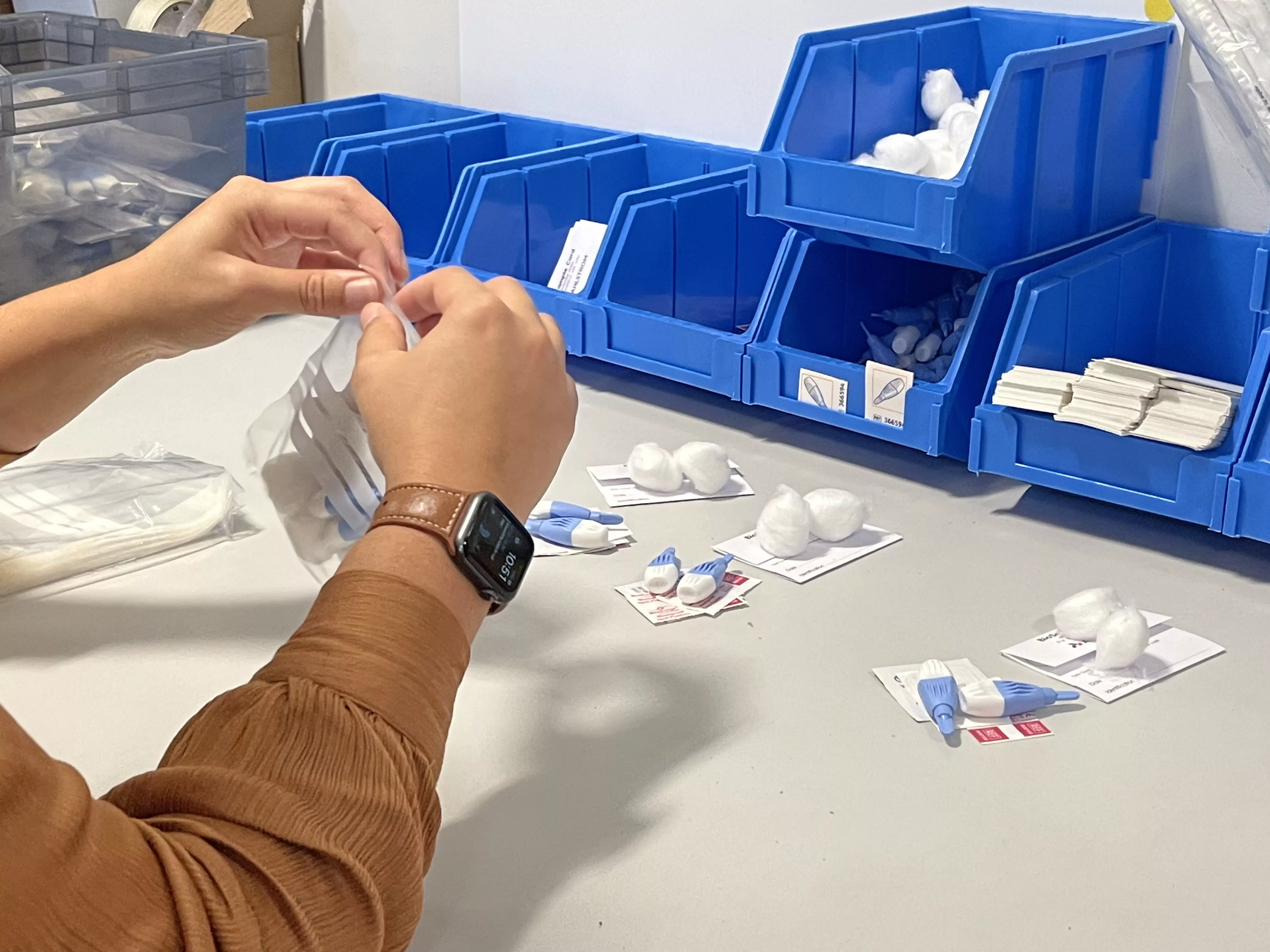
UPDATE, 25 JUNE 2024: We’re thrilled that 20,000 children have signed up to the ELSA study to understand their future risk of type 1 diabetes. Recruitment is still open and researchers need more families to get involved and spread the word.
The ELSA (EarLy Surveillance for Autoimmune diabetes) study is screening children aged 3 to 13 years to find those who are at high risk of developing type 1 diabetes. ELSA is co-funded by us and JDRF.
Taking part involves a simple finger prick blood test which allows researchers to look for the earliest warning signs of type 1 diabetes.
20,000 children and their families have now signed up. But researchers need more families to get involved and recruitment is still open.
What is ELSA screening for?
Long before people develop type 1 diabetes, signs in the immune system can appear that tell us it’s gearing up to attack the pancreas. These signs are called islet autoantibodies.
Usually, our antibodies help to protect us against bugs which make us ill. In type 1 diabetes, islet autoantibodies attach to insulin-making beta cells. In a harmful game of tag, autoantibodies tell your immune system that these beta cells should be destroyed. Screening looks for these autoantibodies in the blood.
Sian’s story
Sian Pondevie’s life changed irreversibly when her daughter, Caitlin, was diagnosed with type 1 diabetes at the age of 13 with potentially life-threatening diabetic ketoacidosis (DKA). She said:
“We didn’t know anything about type 1 until diagnosis and we were blind-sided. She was losing her vision, had lost weight and was in DKA. She needed to stay in hospital and our lives then changed forever.”
By knowing in advance if a child is very likely to develop type 1 diabetes, screening gives a valuable window for families to prepare and access the support they need, like information on symptoms and management. It also means children can be closely monitored to catch type 1 diabetes sooner, dramatically reducing the risk of DKA.
Screening could make a type 1 diabetes diagnosis the safest it’s ever been.
Sian has three other daughters. When the family heard about ELSA they decided they wanted to get involved.
Through the study, Sian found out that one of her other daughters, Freya, has autoantibodies and is going to develop type 1 diabetes in the future. Because of ELSA, Freya is now receiving the support she needs in the form of education, monitoring and regular calls with the research team. Sian feels that when Freya eventually develops type 1 diabetes, the family will cope better with the change.
Sian said:
“I would definitely recommend ELSA to a friend or colleague. The biggest factor for us is knowledge. Type 1 diabetes is a chronic condition so it’s a bittersweet study as you are finding out if your child is going to live with this condition forever. However, she won’t get sick like her sister.
“We have had so much support from everyone involved and know that with close monitoring my child will transition smoothly. This experience of diabetes is a positive one.”
An exciting future ahead for screening
Children found to be at high risk of type 1 diabetes through ELSA could be at the front of the queue for access to pioneering new immunotherapy treatments.
Immunotherapies are designed to halt the immune system’s attack to delay or even prevent type 1. One treatment, called teplizumab, delayed the development of type 1 by an average of three years in people at high risk. It’s currently under review for use in the UK. And other preventative immunotherapies are being tested in clinical trials.
Screening gives us a way to identify people who would benefit and fast track them towards new trials or treatments. To make it easier to connect people at risk with researchers, we’ve funded Dr Rachel Besser from the University of Oxford to build a register of everyone in the UK who has autoantibodies.
Researchers will also use the registry to understand what it feels like to know you’re going to develop type 1 diabetes. They’ll use these insights to create resources to better support people at high risk and in the early stages of type 1 diabetes.
To get us ready for the possibility of screening and immunotherapies hitting the UK, our ELSA researchers have also been working with the NHS. SNOMED codes are labels recorded in our electronic health records. Previously, there was no SNOMED code to flag to doctors that someone has a high risk of type 1 diabetes. Now, that’s changed thanks to ELSA.
In April, a new ‘pre-type 1 diabetes’ SNOMED code was launched. Having your risk stamped in your health records will mean people can receive earlier, more timely care and be linked up with immunotherapy trials and treatments.
What about adults?
People aged 18-70 years in the UK can take part in a similar screening study called T1DRA. Over 5,000 people have already signed up and the researchers want 15,000 more to get involved.
By taking part in screening studies like ELSA and T1DRA, a world where children and adults give less and less of their daily time and energy to type 1 diabetes is coming ever closer. We’re grateful to the tens of thousands of you who are taking up the call and are helping diabetes research.
